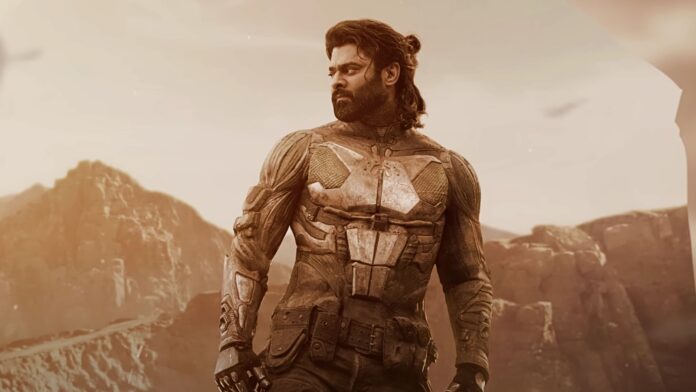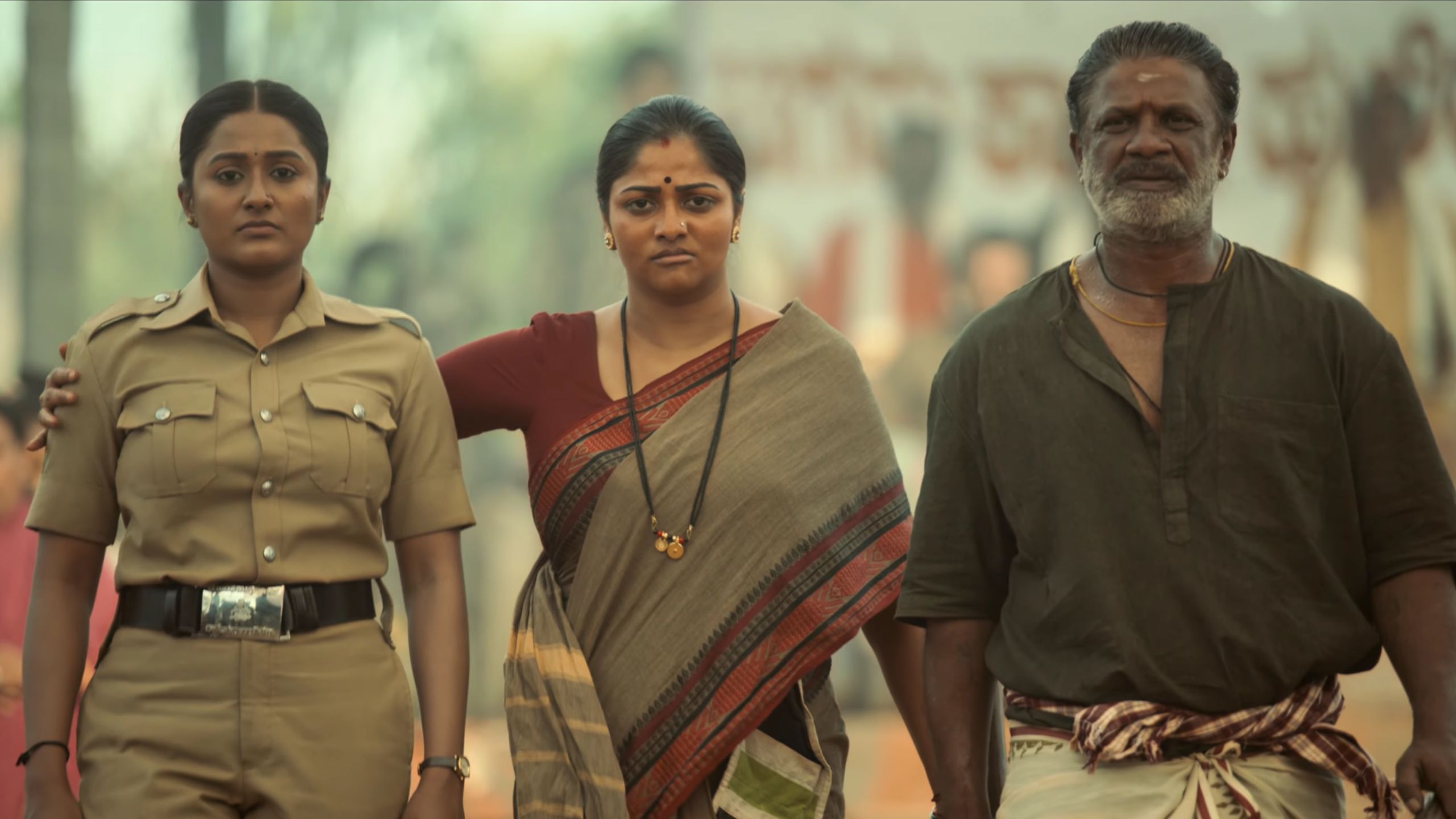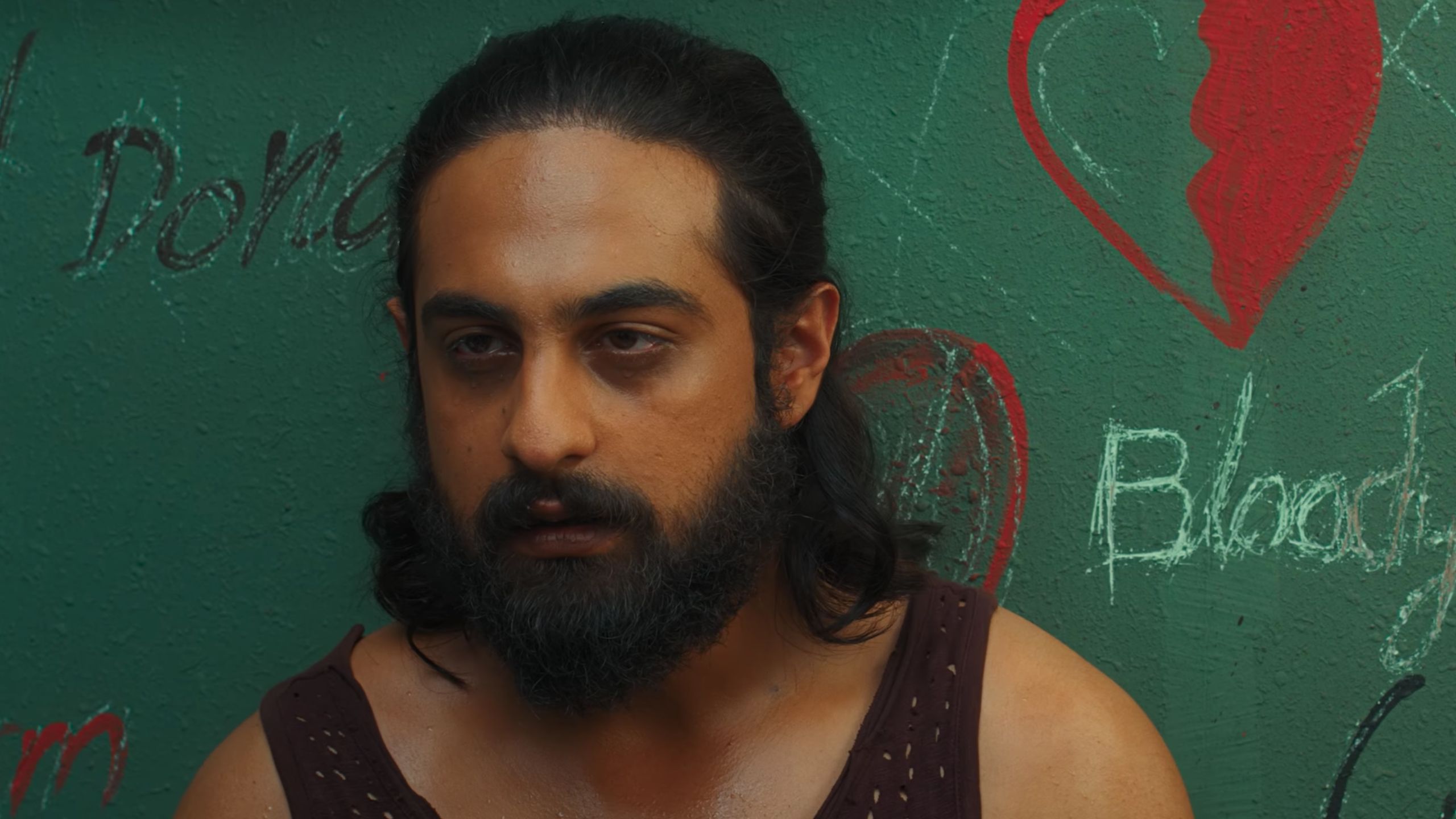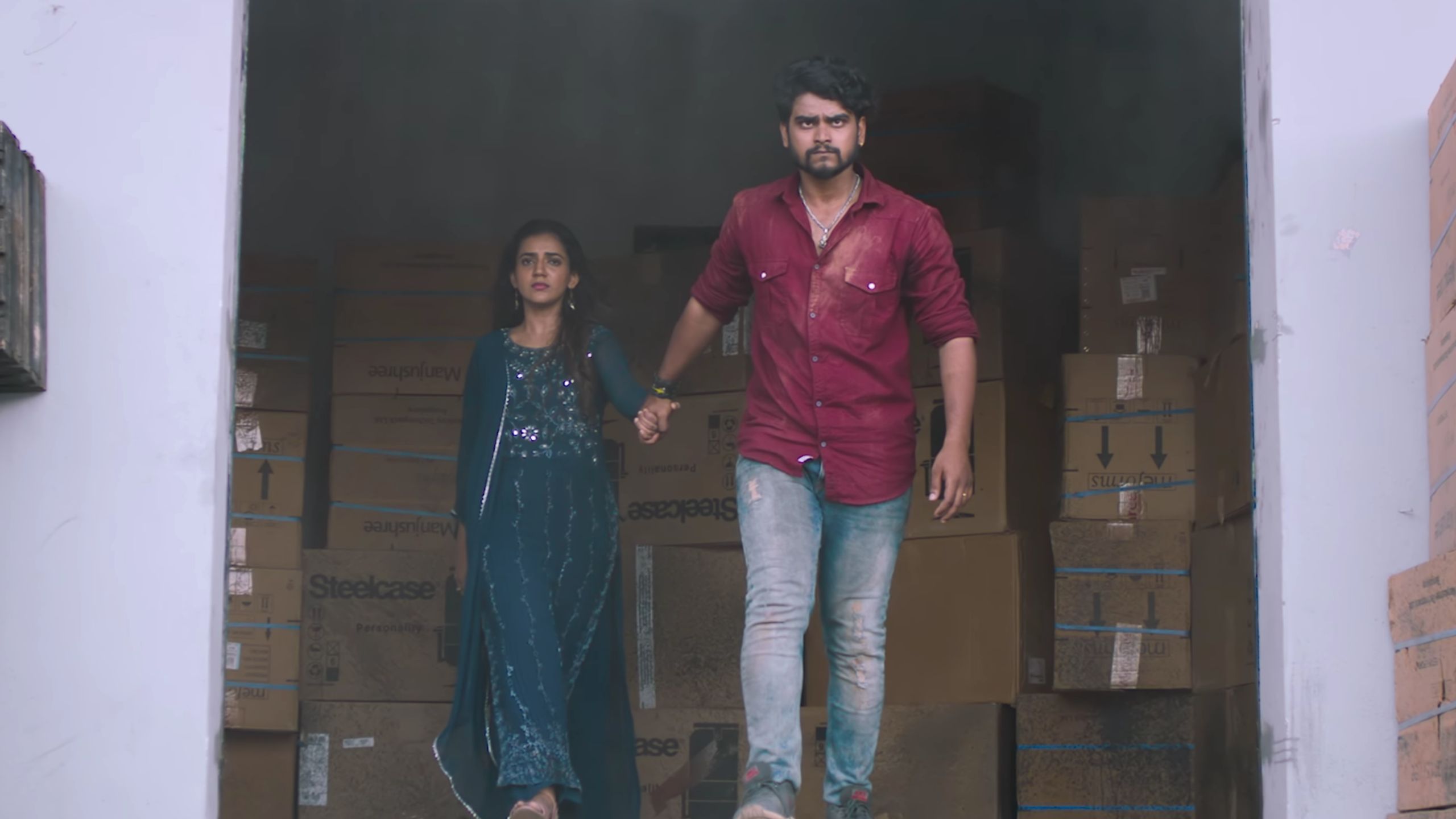Before delving into the film, it’s essential to understand its mythological elements. In Hindu mythology, Vishnu, the supreme deity, incarnates in ten avatars to restore balance during times of great evil. The final avatar, Kalki, is prophesied to appear at the end of Kali Yuga. The story of the film “Kalki 2898 AD” spans from the Mahabharata in 3102 BC to 2898 AD, blending ancient mythology with a dystopian future and focusing on Kalki’s arrival.
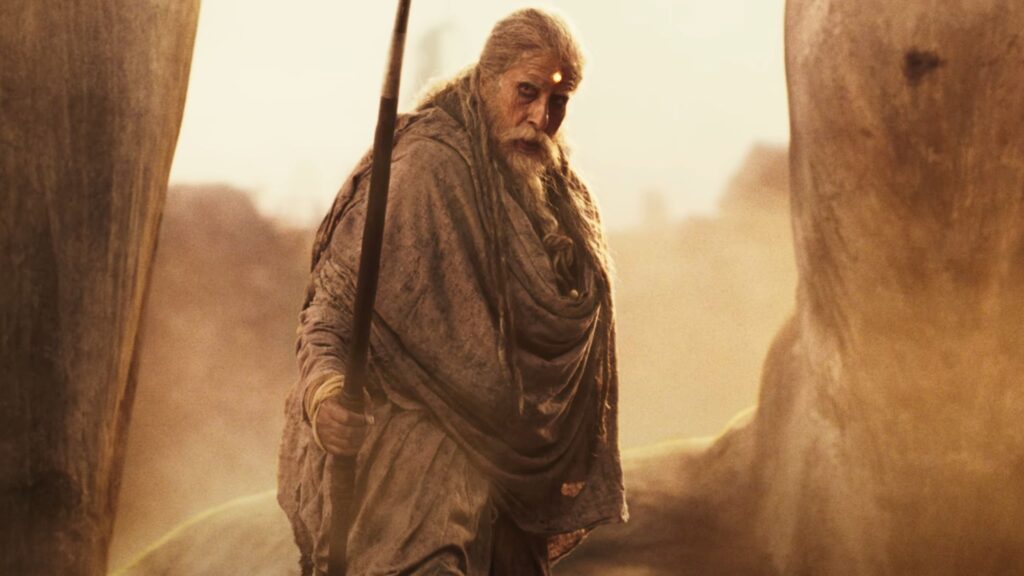
After the Mahabharata war, Ashwatthama, seeking revenge, mercilessly killed the Pandavas’ five sons sleeping in camp and directed a deadly Brahmastra towards Uttara’s womb, endangering her unborn child. As punishment, Krishna extracted the gem from Ashwatthama’s forehead and cursed him to suffer eternally with a bleeding wound, condemning him to a life of perpetual agony for his heinous acts.
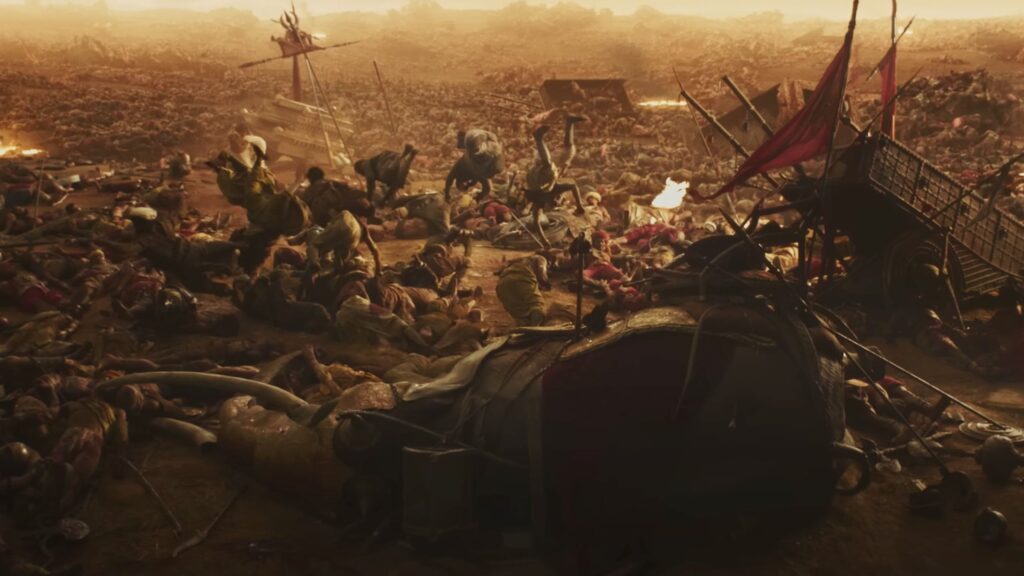
In the film “Kalki 2898 AD,” written and directed by Nag Ashwin, envisions a dystopian future where humanity faces its end. The world has collapsed, leaving only one city, Kashi, with an inverted pyramid structure known as the “Complex” hovering above. This city is ruled by the god-like Yaskin (Kamal Hassan), who sustains himself by draining the life force of humans. Deepika Padukone’s character, SUM-80, aka Sumathi, finds herself trapped in the Complex, concealing her pregnancy to protect herself and her unborn child.
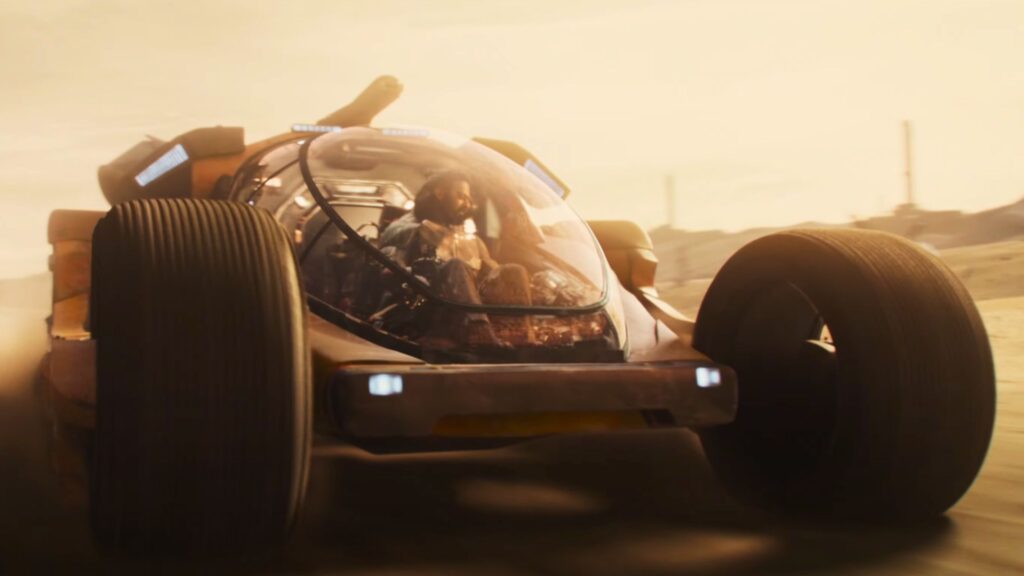
Bhairava (Prabhas), a bounty hunter with selfish motives, aims to gain entry into the Complex for personal gain. Meanwhile, Ashwatthama from the Mahabharata, haunted by his past mistakes, enters the narrative driven by a desire to redeem himself and believes the birth of a new god could end the reign of evil as per prophecy. As their paths intertwine, each character’s introduction propels us deeper into the narrative, unraveling the complexities of this future world and setting the stage for their intertwined destinies.
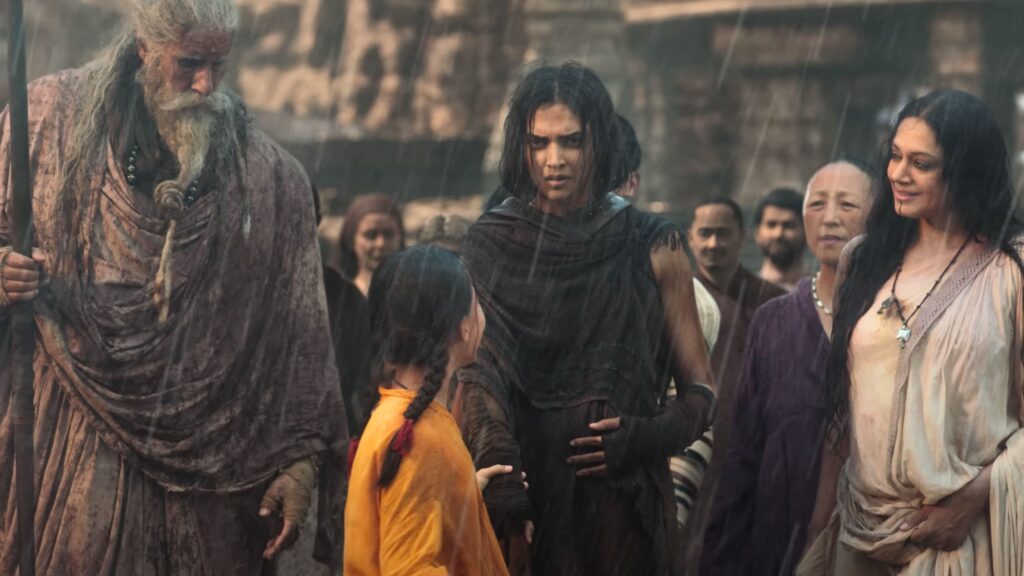
Director Nag Ashwin deserves applause for his visionary conceptualization of imaginative worlds. While the first half starts slow and generic, the movie picks up momentum in a thrilling second half, closing with a high-note cliffhanger climax. The futuristic world, though reminiscent of international hits like Star Wars, Marvel, Dune, and others at times, impresses with its marvelous mythological recreation and seamless integration of past and future. “Kalki 2898 AD” deserves praise for this ambitious blend. The Cinematography, CGI and VFX teams excel, though the music occasionally fails to sync with the narrative, slightly impacting the overall experience.
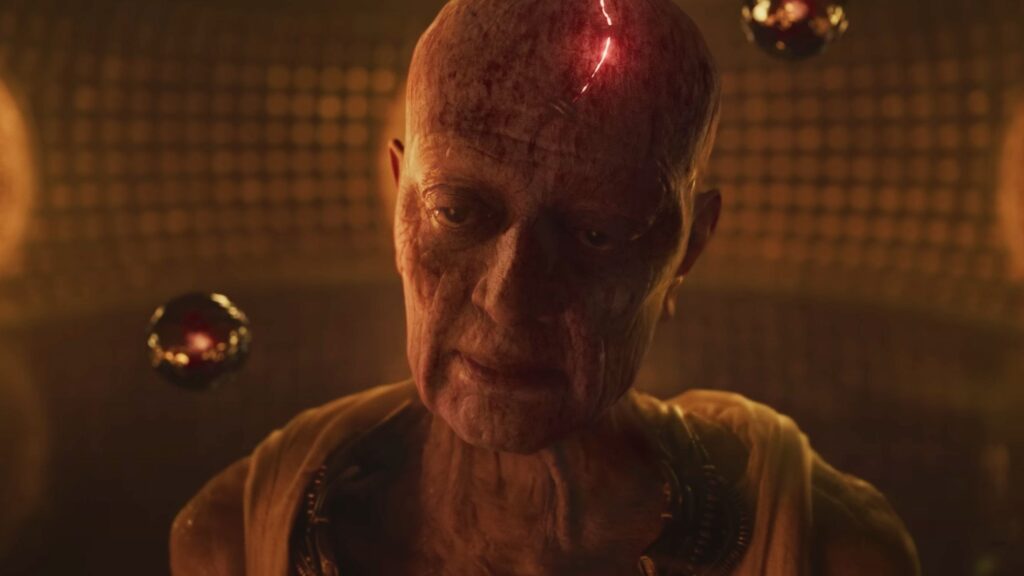
After watching the movie, it’s incredibly hard to imagine anyone else in the roles—they seem tailor-made to perfection. Prabhas, India’s favorite for portraying superhuman on-screen, shines brilliantly as Bhairava. Deepika Padukone as Sumathi is another excellent choice, bringing depth to her character. Kamal Haasan’s brief yet captivating portrayal of Yaskin adds a new dimension to the supervillain role. However, stealing both the show and our hearts is Amitabh Bachchan as Ashwatthama, delivering a performance of unparalleled excellence that will be remembered for years. The movie brings smiles and cheers to the theatre at multiple timeline, featuring surprising cameos that delight audiences. Special mention goes to Shobhana as Mariam and Keerthy Suresh as the voice of Bujji.
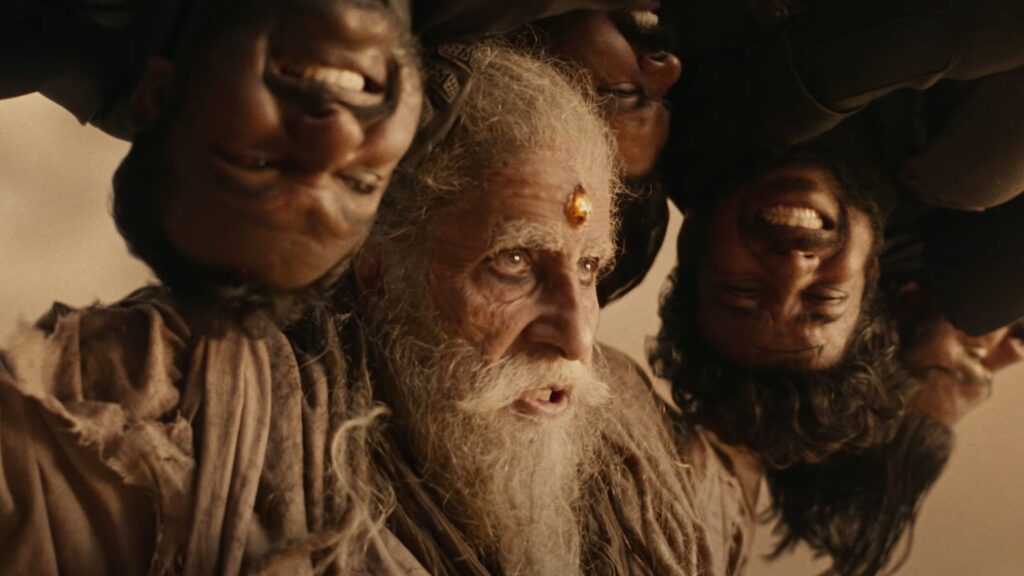
“Kalki 2898 AD” has its minor flaws, but it’s a must-watch in theaters for several reasons: its exceptional craftsmanship and conceptualization, memorable Mahabharata recreations, goosebumps-inducing climax, stellar performances from the cast, especially veterans Amitabh Bachchan and Kamal Haasan, who deliver their best performances throughout. Lastly, leaving the theater, one can’t help but appreciate the biodiversity that surrounds us now, pondering the future of our world. Don’t miss experiencing this unique piece of Indian cinema in theaters—it’s worth every moment.





